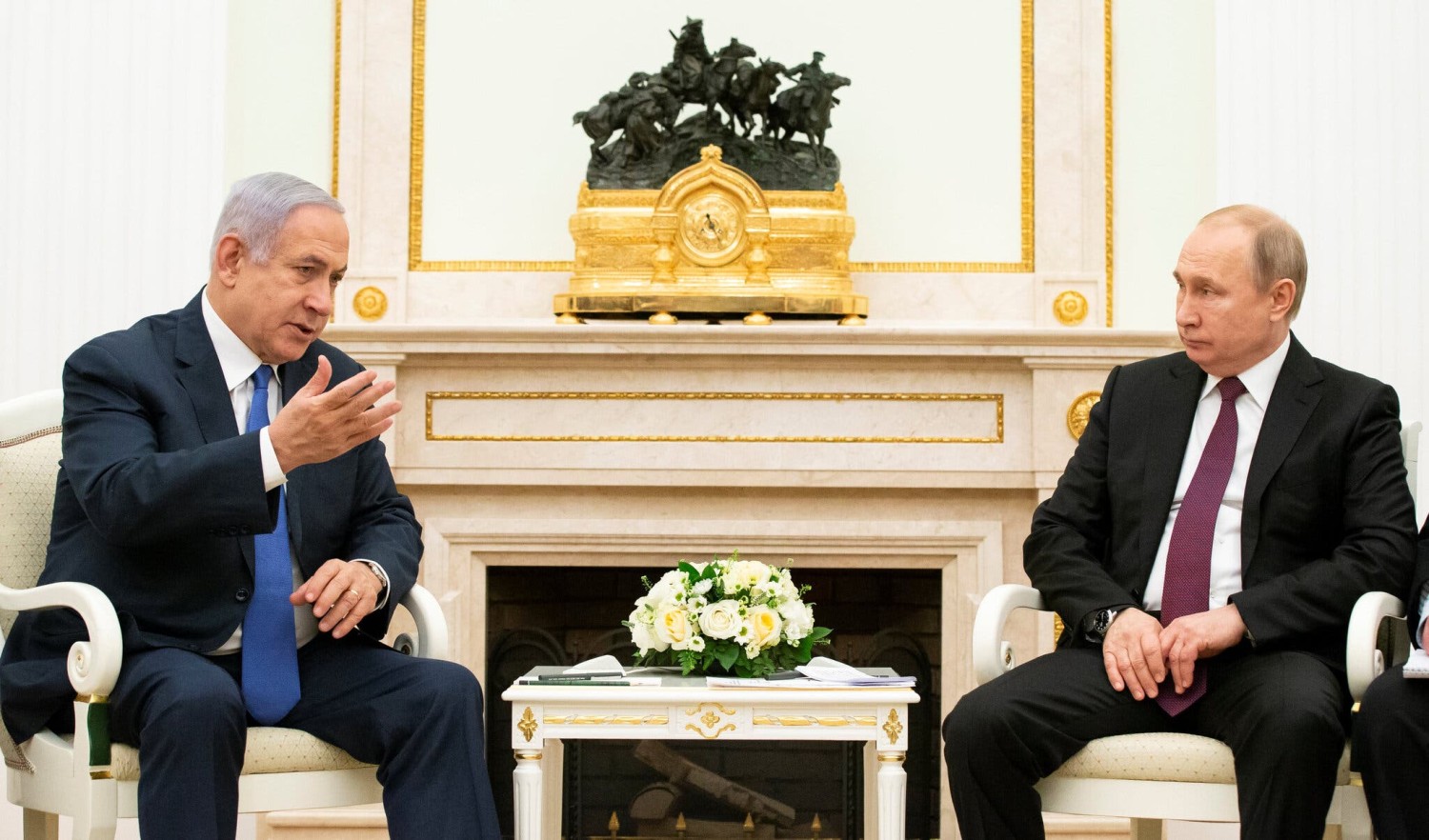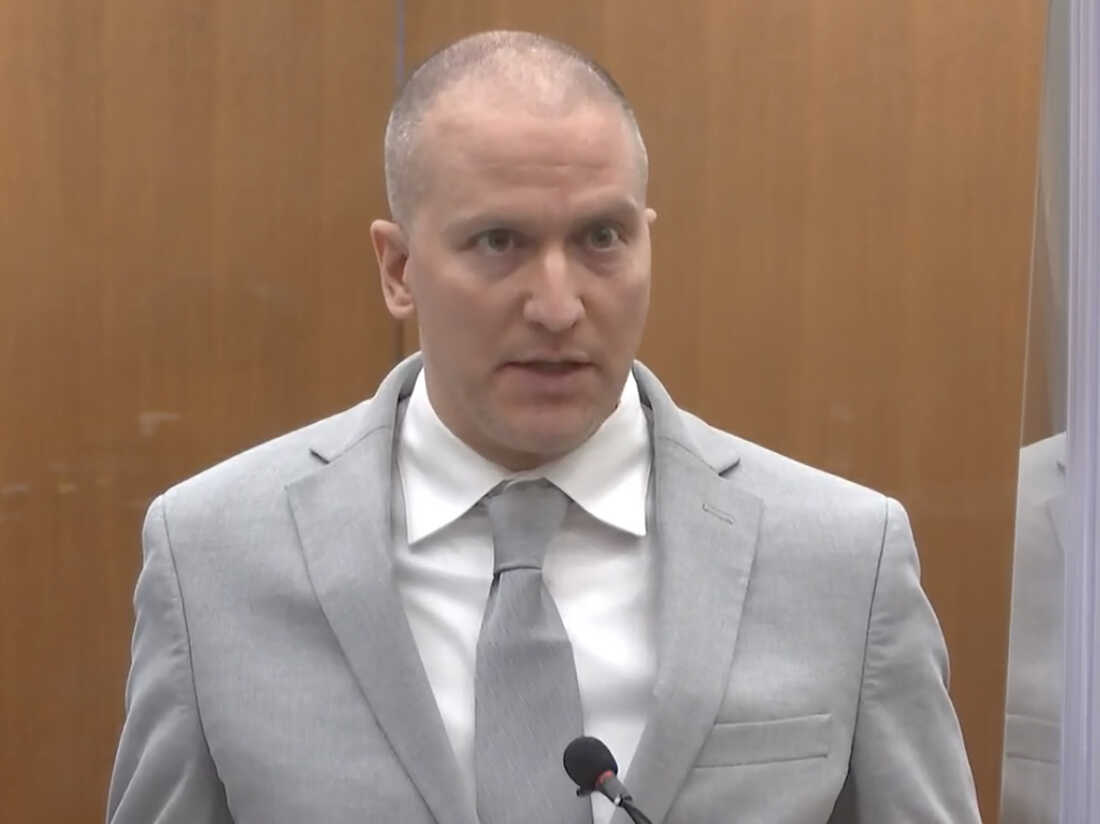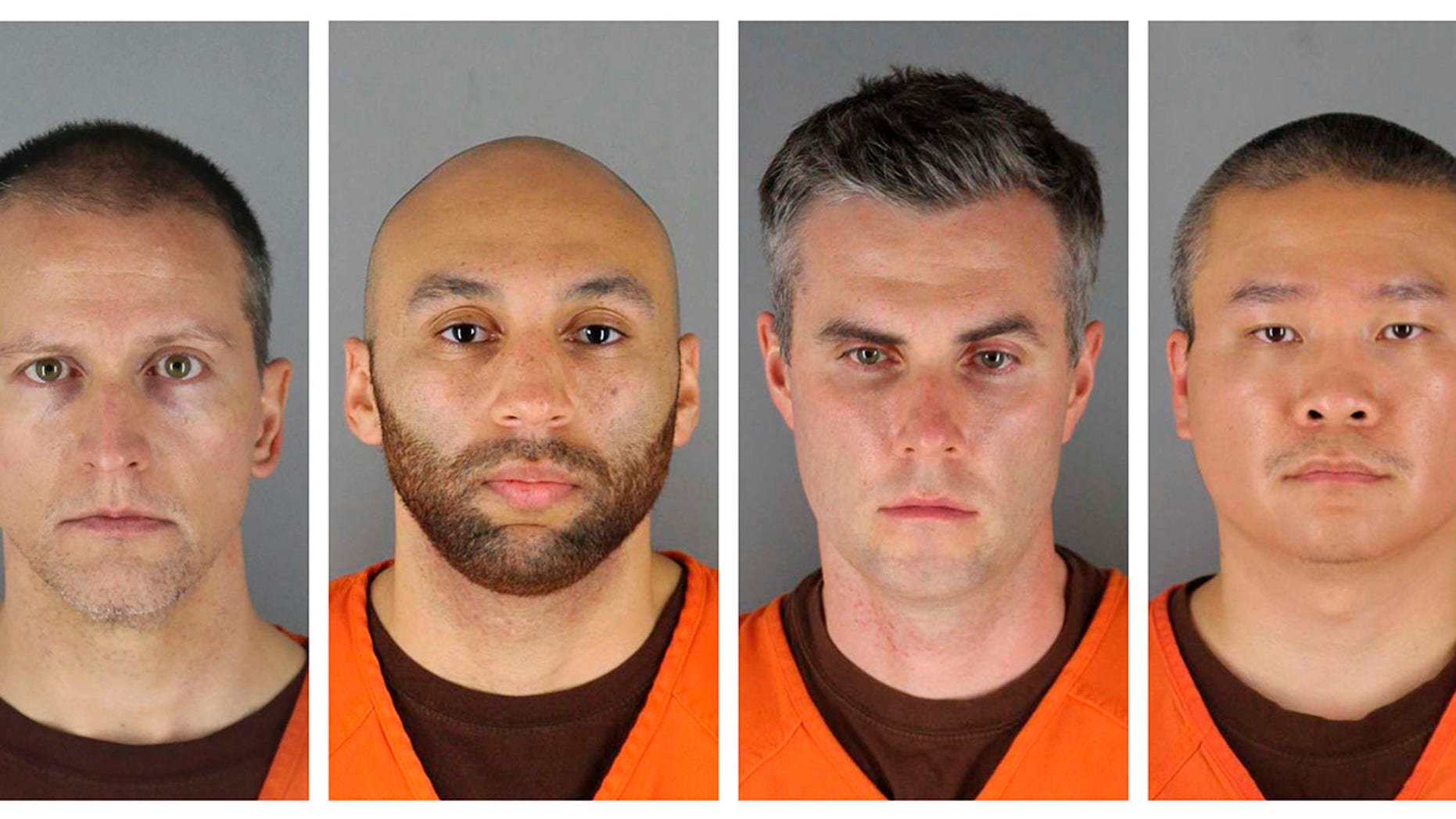This article is more than
3 year oldGeorge Floyd died from lack of oxygen, not fentanyl, says expert
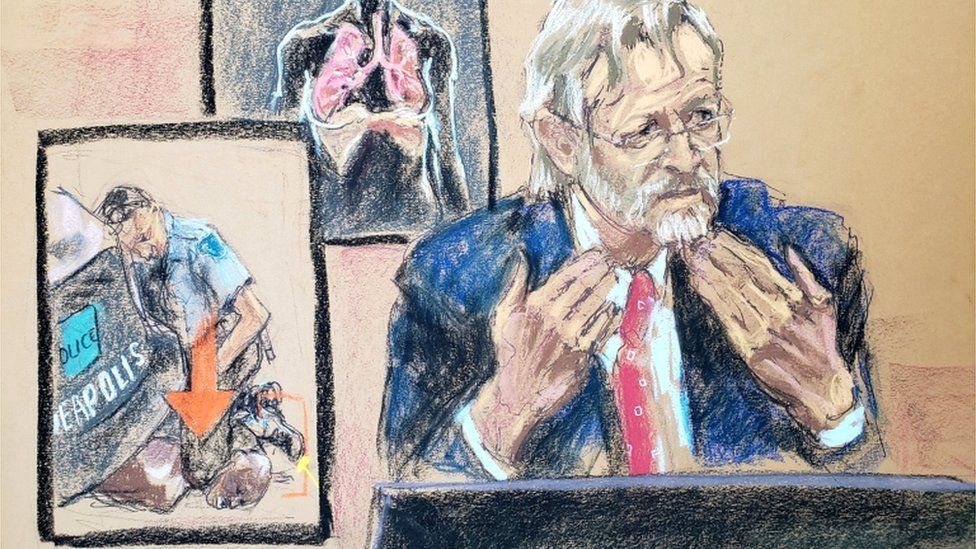
Contradicting the defence, Dr Martin Tobin said fentanyl did not cause Mr Floyd's death. He said even a "healthy person...would have died".
Mr Chauvin, 45, was filmed kneeling on Mr Floyd's neck for more than nine minutes during his arrest last May.
The ex-officer is on trial for murder and has denied the charges against him.
The footage of Mr Chauvin, who is white, with his knee on African-American Mr Floyd's neck sparked global protests against racism.
Prosecutors are trying to prove Mr Chauvin's use of force resulted in Mr Floyd's death, while Mr Chauvin's defence are seeking to show he was following his training and that drugs may have caused Mr Floyd's death.
The trial is in its second week and is expected to last for at least one month. The defence is due to begin arguing its case in court next week.
What did the experts say about fentanyl?
A toxicology report released last June said that Mr Floyd had the painkiller fentanyl and the drug methamphetamine in his system.
Since then, the defence has argued that the fentanyl caused Mr Floyd's loss of oxygen.
However Dr Tobin, an intensive care doctor, said that Mr Floyd's breathing did not slow down enough for the painkiller to have been a factor in his total loss of oxygen.
Forensic toxicologist Daniel Isenschmid, whose laboratory tested Mr Floyd's blood and urine samples following his death, said there was evidence that some of the fentanyl had metabolised, meaning that an overdose was less likely.
- The man accused of killing George Floyd
- Watching the Chauvin trial 'was hurtful'
- 'I stay up at night apologising to George'
The defence also questioned Kentucky police surgeon Dr Bill Smock, an expert in forensic emergency medicine.
Dr Smock said Mr Floyd displayed "air hunger", a term for when the body becomes desperate for oxygen. While a fentanyl overdose can slow down breathing, he said people who are overdosing are not aware that they are lacking oxygen and often appear sleepy. In contrast, he said Mr Floyd appeared to be alert.
On cross-examination, he agreed with the defence that there was "no safe" amount of methamphetamine to be in someone's system, and that an overdose of methamphetamine and fentanyl combined may look different from fentanyl alone.
Dr Smock also told the court that while viewing the footage, he heard Mr Floyd complain about being unable to breathe before he was restrained on the ground.
What else was the court told?
Asked about the positioning of the handcuffs behind Mr Floyd's back, coupled with the downward pressure of Mr Chauvin's weight against him, Dr Tobin - an expert in pulmonary medicine - said that Mr Floyd's ability to expand his chest to breathe was severely impaired.
It was, Dr Tobin said, like the left side of his chest was "in a vice".
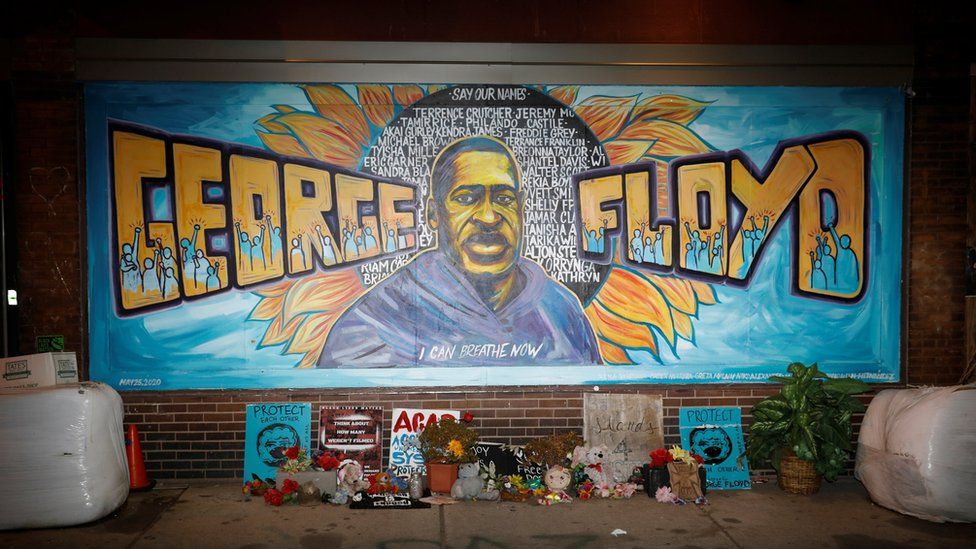
The death of George Floyd sparked protests around the world
Dr Tobin said the positioning of the handcuffs was also significant.
"It's how they're being pushed, where they are being pushed, that totally interfere with central features of how we breathe."
"[Mr Floyd] has used up his resources and is literally trying to breathe with his fingers and knuckles against the street to try to crank up his chest, to try to get air into his right lung," he added.
"You can see he's conscious, you can see slight flickering and then it disappears. One second he's alive, one second he's no longer."
'Healthy person would have died too'
Dr Tobin said that Mr Floyd had already shown signs of brain injury about four minutes before Mr Chauvin took his knee off his neck, and that a healthy person who was put through this "would have died" too.
About three minutes before Mr Chauvin removed his knee, Dr Tobin said, there was "not an ounce of oxygen left in his body".
"The knee remains on the neck for another three minutes and 27 seconds after he takes his last breath," Dr Tobin said. "After the officers have found themselves that there's no pulse, the knee remains on the neck for another two minutes and 44 seconds."
Dr Tobin used footage captured during Mr Floyd's arrest to provide his medical opinion on the ninth day of Mr Chauvin's trial.

nDr Tobin said there were no signs that Mr Floyd's death was linked specifically to a heart condition
During his cross-examination, defence attorney Eric Nelson suggested that Dr Tobin's assessment was "conditioned upon [Mr Floyd] being a healthy individual".
"We understand that Mr Floyd had some heart disease," Mr Nelson said. "That's going to affect blood flow in a person?"
Dr Tobin said that if Mr Floyd had been suffering from a coronary condition at the time he would have been "complaining of chest pain and demonstrating a very rapid respiratory rate," adding: "We don't see either."
What has happened in the trial so far?
The court has heard from witnesses, medical experts and police officers. The moments leading to Mr Floyd's encounter with police, as well as the footage that sparked nationwide protests, have been closely scrutinised.
The early stages of the trial saw often tearful testimony from onlookers. The teenager whose video of the arrest went viral said "it's been nights I stay up apologising and apologising to George Floyd for not doing more".
This week the Minneapolis police chief Medaria Arradondo said Mr Chauvin had violated the agency's policy on using force. An expert witness also said that the use of force was "excessive".
The defence has sought to show Mr Chauvin acted lawfully in a volatile situation. His lawyer said the evidence "is clearly more than about nine minutes and 29 seconds," referring to the videos of Mr Floyd's death.
The jury's verdict must be unanimous and US police officers are rarely convicted or charged at all for deaths that occur in custody.
Newer articles
<p>The ceremony was held in Moscow amid a tense geopolitical situation and diplomatic rift with the West</p>
West has a decision to make – Putin
Fans stunned by TV star’s weight loss
Hamas tells Qatari, Egyptian mediators it agrees to ceasefire proposal
Drake denies allegations by Kendrick Lamar of underage sex and harbouring secret child
Craig David, a hitmaker since 2000, is still getting audiences dancing
Bombshell new theory on Titan sub disaster
For Putin, Gaza is an endless gift
TikTok Ban Sparks Lawsuit Pitting National Security Concerns Against First Amendment Rights
‘It’s just not hitting like it used to’: TikTok was in its flop era before it got banned in the US
